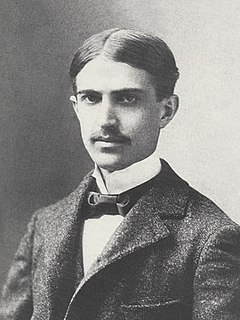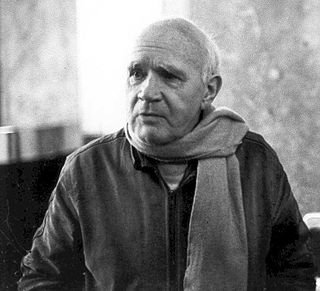A Quote by J. R. R. Tolkien
And when [Bëor] lay dead, of no wound or grief, but stricken by age, the Eldar saw for the first time the swift waning of the life of Men, and the death of weariness which they knew not in themselves; and they grieved greatly for the loss of their friends. But Bëor at the last had relinquished his life willingly and passed in peace; and the Eldar wondered much at the strange fate of Men, for in all their lore there was no account of it, and its end was hidden from them.
Related Quotes
Here was one with an air of high nobility such as Aragorn at times revealed, less high perhaps, yet also less incalculable and remote: one of the Kings of Men born into a later time, but touched with the wisdom and sadness of the Eldar Race. He knew now why Beregond spoke his name with love. He was a captain that men would follow, that he would follow, even under the shadow of the black wings.
Again, somehow, one saw life, a pure bead. I lifted the pencil again, useless though I knew it to be. But even as I did so, the unmistakable tokens of death showed themselves. The body relaxed, and instantly grew stiff. The struggle was over. The insignificant little creature now knew death. As I looked at the dead moth, this minute wayside triumph of so great a force over so mean an antagonist filled me with wonder. Just as life had been strange a few minutes before, so death was now as strange.
It is the fate of most men who mingle with the world, and attain even the prime of life, to make many real friends, and lose them in the course of nature. It is the fate of all authors or chroniclers to create imaginary friends, and lose them in the course of art. Nor is this the full extent of their misfortunes; for they are required to furnish an account of them besides.
He recognized her despite the uproar, through his tears of unrepeatable sorrow at dying without her, and he looked at her for the last and final time with eyes more luminous, more grief-stricken, more grateful than she had ever seen them in half a century of a shared life, and he managed to say to her with his last breath: “Only God knows how much I loved you
This soldier, I realized, must have had friends at home and in his regiment; yet he lay there deserted by all except his dog. I looked on, unmoved, at battles which decided the future of nations. Tearless, I had given orders which brought death to thousands. Yet here I was stirred, profoundly stirred, stirred to tears. And by what? By the grief of one dog. Napoleon Bonaparte, on finding a dog beside the body of his dead master, licking his face and howling, on a moonlit field after a battle. Napoleon was haunted by this scene until his own death.
Women are not angels. They are as foolish as men in many ways; but they have had to devote themselves to life whilst men have had to devote themselves to death; and that makes a vital difference in male and female religion. Women have been forced to fear whilst men have been forced to dare: the heroism of a woman is to nurse and protect life, and of a man to destroy it and court death.
A myriad of men are born; they labor and sweat and struggle; ...they squabble and scold and fight; they scramble for little mean advantages over each other; age creeps upon them; infirmities follow; ...those they love are taken from them, and the joy of life is turned to aching grief. It comes at last--the only unpoisoned gift earth ever had for them--and they vanish from a world where they were of no consequence, ...a world which will lament them a day and forget them forever.
I am talking about genuine peace, the kind of peace that makes life on earth worth living, the kind that enables men and nations to grow and to hope and to build a better life for their children - not merely peace for Americans but peace for all men and women - not merely peace in our time but peace for all time.
I saw a delicate flower had grown up two feet high
between the horses' feet and the wheel-track.
Which Dakin's and Maynard's wagons had
Passed over many a time.
An inch more to the right or left had sealed its fate,
Or an inch higher. Yet it lived and flourished,
As much as if it had a thousand acres
Of untrodden space around it, and never
Knew the danger it incurred.
It did not borrow trouble, nor invite an
Evil fate by apprehending it.
He is not famous. It may be that he never will be. It may be that when his life at last comes to an end he will leave no more trace of his sojourn on earth than a stone thrown into a river leaves on the surface of the water. But it may be that the way of life that he has chosen for himself and the peculiar strength and sweetness of his character may have an ever-growing influence over his fellow men so that, long after his death perhaps, it may be realized that there lived in this age a very remarkable creature.
When we see the many grave-stones which have fallen in, which have been defaced by the footsteps of the congregation, which lie buried under the ruins of the churches, that have themselves crumbled together over them; we may fancy the life after death to be as a second life, into which man enters in the figure, or the picture or the inscription, and lives longer there than when he was really alive. But this figure also, this second existence, dies out too, sooner or later. Time will not allow himself to be cheated of his rights with the monuments of men or with themselves.
I, on my side, require of every writer, first or last, a simple and sincere account of his own life, and not merely what he has heard of other men's lives; some such account as he would send to his kindred from a distant land; for if he has lived sincerely, it must have been in a distant land to me.
The zest for life of those unusual men and women who make a great zealous success of living is due more often in good part to the craftiness and pertinacity with which they manage to overlook the misery of others. You can watch them watch life beat the stuffing out of the faces of their friends and acquaintances, although they themselves seem to outwit the dense delays of social custom, the tedious tick-tock of bureaucratic obfuscation, accepting loss and age and change and disappointment without suffering punctures in their stomach lining.



































